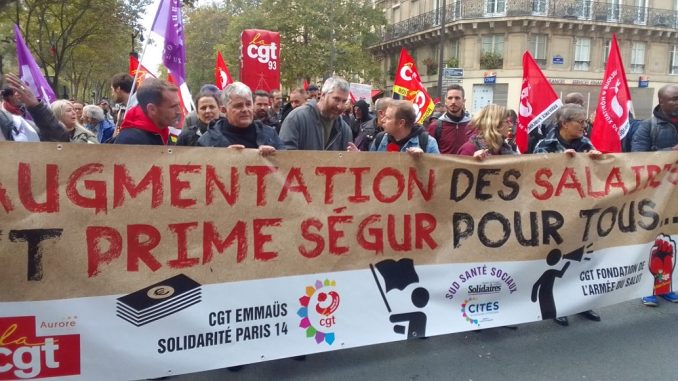
Called by the CGT, FSU and Solidaires trade union federations together with some sections of FO and CFDT, on September 29 a general strike took place throughout France for a salary increase and against Macron’s pension reform. There were marches and protests in Paris and 200 other cities. Not only is social discontent against the government growing, but also the political space for the radical left.
By Pablo Vasco
The effective impact of the strike was quite relative, around 20% in industry and 30% in services, since the working class is tired of the isolated and non-continuous “days of struggle” called by the bureaucracy instead of the plan of struggle that is needed. The measure was partial among state employees, transport (RATP, SNCF), public health and education. Even so, there are major labor conflicts underway with stoppages of several days at the PSA Group (Peugeot-Citroën) plants, at the Total oil company refineries, Carrefour, the Arkema chemical company and other private companies.
But yes: the mobilization in the streets was much greater than expected, expressing the climate of growing popular anger. In Paris, where the mass media expected only about 4,000 people, more than 25,000 protesters marched the four kilometers that separate Denfert-Rochereau square from the Bastille square. The wage demand was clearly dominant. In front of the main march, the “autonomous” marched separately and behind the large union columns, marched the student federations with their own demands as well as Lutte Ouvrière, the NPA and other groups of the militant left. “Raise wages, not the retirement age” and “The streets are ours,” were heard over and over again among other slogans; the more radical youth sang “Down with the State, the police and the bosses.”
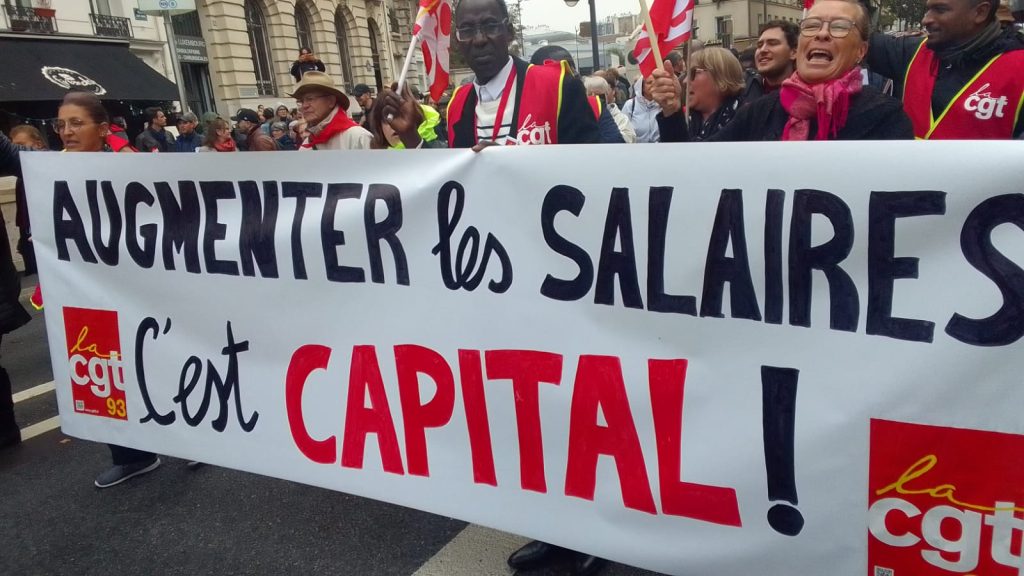
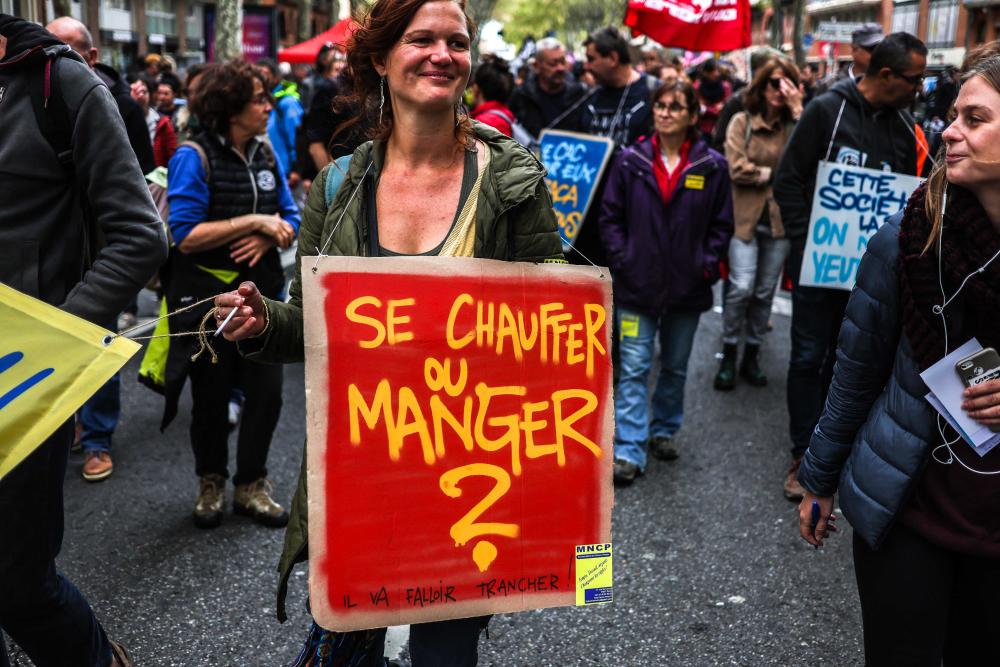
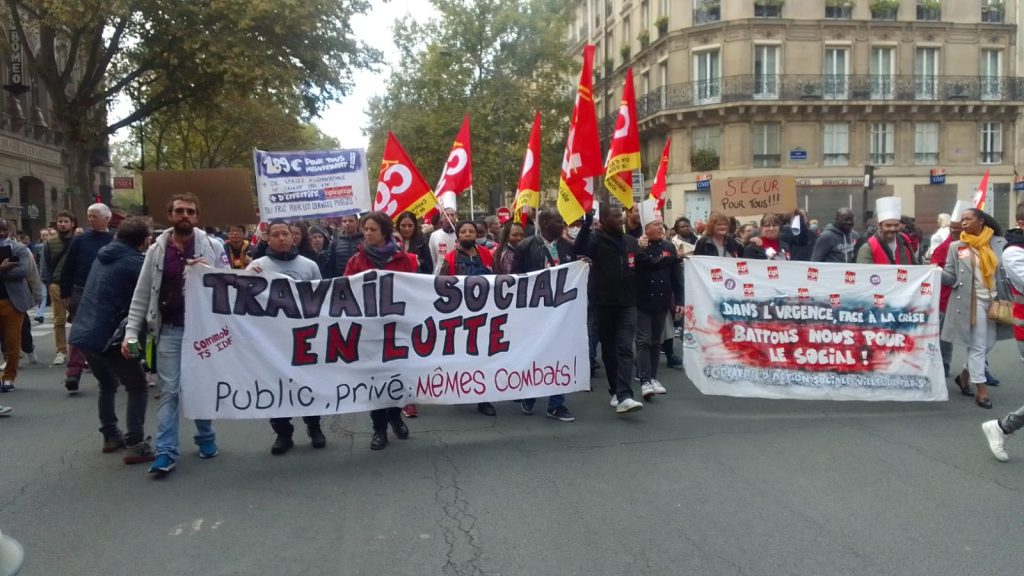
A meeting of the eight national union federations is scheduled for October 3 to coordinate actions against the pension reform that aims to raise the retirement age to 65, increase the years of contribution or both measures at the same time. And La Francia Insumisa, the center-left alliance led by Mélenchon – whose coordinator Quatennens had to leave his position due to gender violence – has called for a march “against expensive life” on Sunday, October 16.
Macron oscillated between achieving his counter-reform by law before the end of the year or at the beginning of 2023. But he generates so much social rejection that even far-right Marine Le Pen has positioned herself against it. Faced with this rejection and parliamentary difficulties, including within his En Marcha party and other right-wing forces, the president now foresees a third path: a bill to amend the financing of Social Security (PLRFSS), which in the form of a “budget change” could be enacted by decree.[1]
In addition to low salaries, 8% annual inflation and the pending pension reform, another challenge for the government is the energy crisis, aggravated by the war between Russia and Ukraine. Several French nuclear power plants have technical difficulties, Parliament approved a partial return to the use of (obviously polluting) coal and Macron is preparing a “savings plan” that is still imprecise, but will involve certain restrictions and an increase in tariffs. “Heat or eat,” as a poster said in the march on the 29th, can be a difficult decision for many families in the approaching winter.
As for the political landscape, Macron’s is a weak government. He was elected with the votes of 38.5% of the electoral roll in an election with a record abstention rate of 28%, which marks an evident popular mistrust in the parties of the system but without generating a positive expression. Macron depends on parliamentary pacts and convened a “National Refoundation Council” that is a failure. In turn, there was a polarization between Le Pen even more to the right and NUPES as an alliance of the institutional left (LFI, PS, PC and Greens), whose central strategy is parliamentarism and class collaboration.
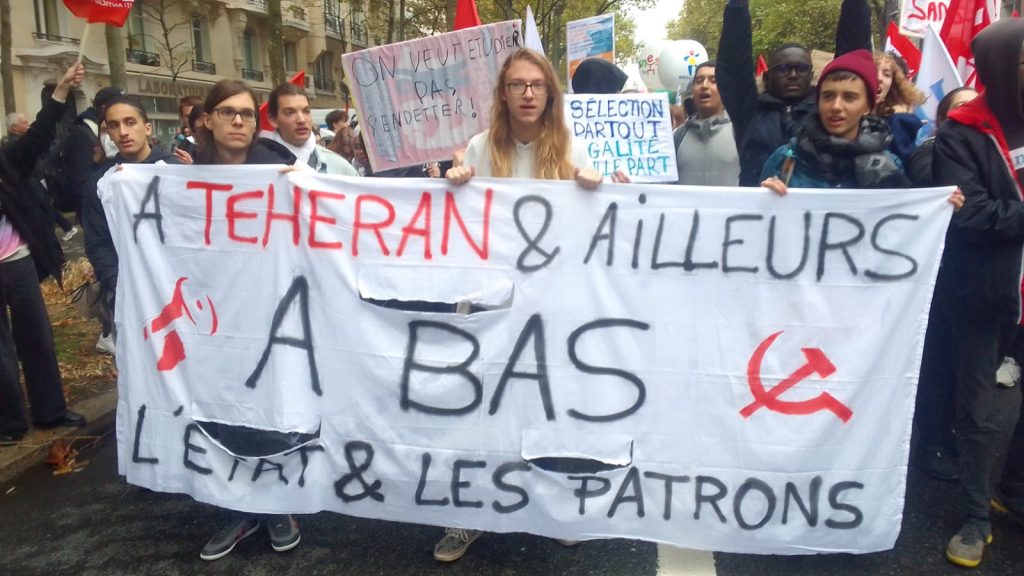
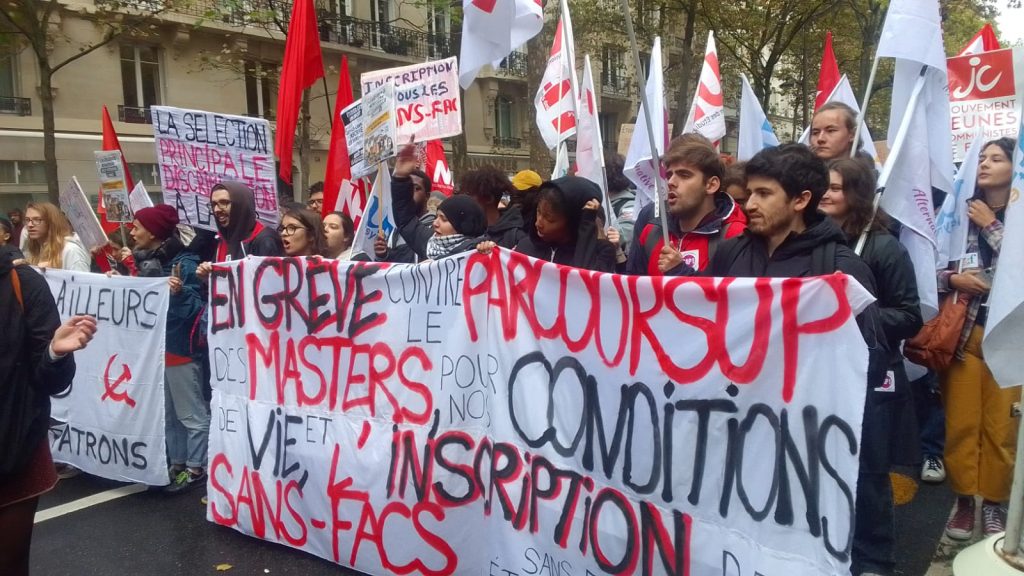
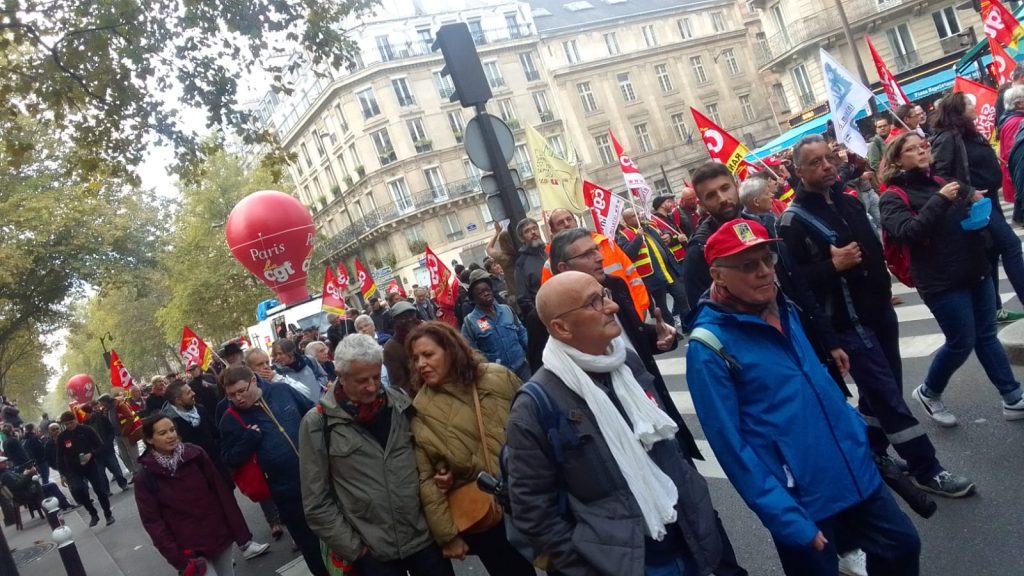
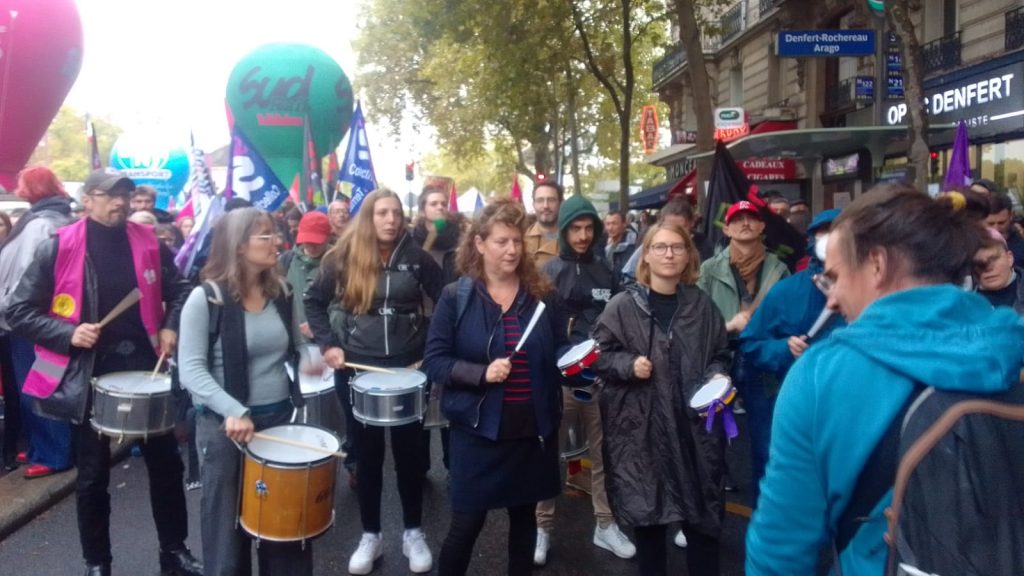
The extreme left, that is, Trotskyism, achieved only 1.2% of the votes between its two candidacies: LO and the NPA, from which the CCR in turn separated. Despite its electoral weakness, Trotskyism is strong among working class and youth activists, as can be seen in the streets. And in a context of growing social anger and structural limitations of the institutional left, the political space for revolutionary socialists will tend to expand. From the International Socialist League (ISL) we believe that the challenge that continues to be posed in France is the regrouping of the extreme left based on a revolutionary program to build a great party of the working class and the people, with freedom of tendencies within it.
[1] This is permitted by article 49.3 of the French Constitution.








